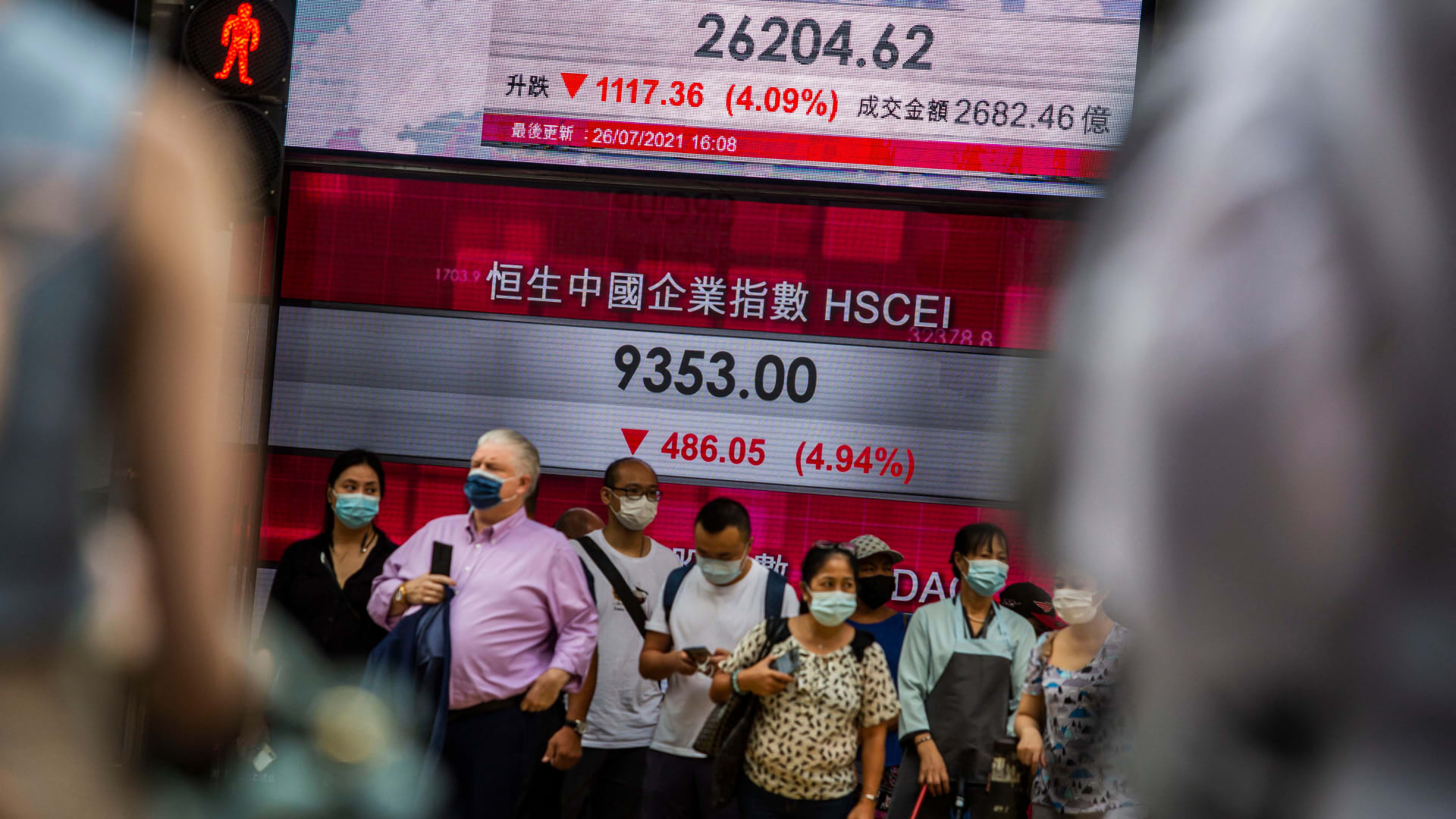
Global Market Jitters: Trump’s Tariffs Cast a Long Shadow
The Asia-Pacific region woke up to a wave of market uncertainty today, with major stock indexes experiencing declines. The culprit? The looming implementation of targeted tariffs imposed by the United States, a move that has sent ripples of apprehension through the interconnected global economy. These aren’t blanket tariffs affecting all trading partners; instead, they are precisely aimed at specific countries, creating a complex and unpredictable landscape for investors.
The impact is already visible. Several key Asian markets saw significant drops in their indices, reflecting investor anxieties about the potential consequences of these new trade barriers. This isn’t merely a short-term blip; the long-term implications are far-reaching and potentially severe, especially for nations heavily reliant on trade with the United States.
The uncertainty stems from the unpredictable nature of these targeted tariffs. Unlike broad-based tariffs that might impact entire sectors equally, these country-specific measures create a situation where businesses struggle to plan effectively. Supply chains are disrupted, and the costs of goods are affected in unpredictable ways. This instability makes it challenging for companies to forecast future revenues and profits, thus dampening investor confidence.
Australia, a significant trading partner of the US, is feeling the effects particularly acutely. Its market experienced a notable drop, illustrating the vulnerability of economies heavily integrated into the global trade network. This isn’t isolated to Australia; similar patterns are emerging across the region, highlighting the interconnectedness of Asian economies and their sensitivity to shifts in US trade policy.
Beyond the immediate market reactions, the longer-term implications are cause for concern. These tariffs could lead to retaliatory measures from affected countries, escalating the trade conflict and potentially triggering a broader downturn in global trade. This escalation could stifle economic growth not just in the Asia-Pacific region, but globally. The interconnectedness of the global economy means that a disruption in one region inevitably affects others, creating a domino effect.
The psychological impact of these tariffs is also noteworthy. The mere anticipation of their implementation has already created a climate of uncertainty and fear. This undermines investor confidence, leading to capital flight and further depressing market performance. This fear is amplified by the unpredictability of future US trade policy, leaving businesses and investors in a state of perpetual uncertainty.
The situation calls for a more nuanced and collaborative approach to international trade. While the immediate impact of these tariffs is undeniably negative, the opportunity exists to find solutions that foster a more balanced and equitable global trading system. This requires dialogue, negotiation, and a commitment to finding mutually beneficial agreements that address the legitimate concerns of all parties involved. Otherwise, the current climate of uncertainty will persist, hampering economic growth and negatively impacting businesses and consumers alike. The road ahead requires careful navigation and a concerted effort to mitigate the potential for further escalation.



Leave a Reply